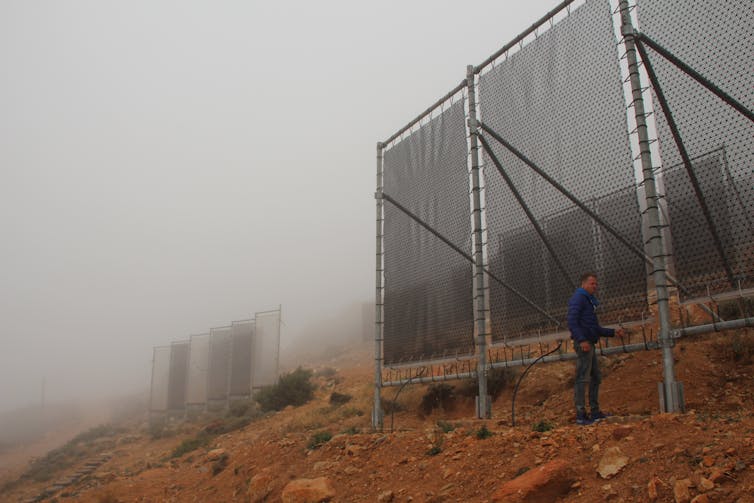Facebook is getting pulled into a fight about the politics of Israel
On November 10th, a Facebook employee sent out an unusual email to an unknown outside party, hoping to arrange a conversation about how the platform moderated against anti-Semitism. “We are looking at the question of how we should interpret attacks on ‘Zionists,’” reads the letter, whose recipient was redacted, “to determine whether the term is a proxy for attacking Jewish or Israeli people.”
That strange but seemingly innocuous email has set off a firestorm in certain corners of the left. Since Tuesday, activists have been circulating a petition calling on the platform to halt any potential changes to the way Facebook moderates the word “Zionist.” Both sides agree the term is often used as part of racist rhetoric that is accurately described as hate speech and should be removed. At the same time, the term is also used by Jewish critics of specific Israeli policies, particularly the country’s settlement policy. Classifying the term as hate speech would end up stifling those criticisms — at least on Facebook.
Hosted by the progressive group Jewish Voices for Peace (JVP), the petition ultimately drew more than 20,000 signatures, including artist-activists like Michael Chabon, Peter Gabriel, and Wallace Shawn. “We are deeply concerned about Facebook’s proposed revision of its hate speech policy to consider ‘Zionist’ as a proxy for ‘Jew’ or ‘Jewish,’” the petition reads. “This is the wrong solution to a real and important problem.”
Reached for comment, Facebook denied that there are any plans to reclassify the word in its hate speech policy. But at the same time, Facebook did not dispute the authenticity of the email or deny that the platform’s classification of the term “Zionist” was under review — simply saying no decision had been made.
“Under our current policies, we allow the term ‘Zionist’ in political discourse, but remove it when it’s used as a proxy for Jews or Israelis in a dehumanizing or violent way,” said a Facebook spokesperson. “Just as we do with all of our policies regularly, we are independently engaging with experts and stakeholders to ensure that this policy is in the right place, but this does not mean we will change our policy.“
Even without a concrete policy change to respond to, JVP sees Facebook’s email as part of a broader campaign to shift how the platform treats criticism of the Israeli government. “Restricting the word ‘Zionist’ as part of a hate speech policy won’t actually make Jewish people safer,” said Rabbi Alissa Wise, Deputy Director at Jewish Voice for Peace, who said the proposed Facebook change would only “prevent its users from holding the Israeli government accountable for harming Palestinian people.”
“Social media companies should allow people to hold our governments accountable to us,” Wise continued, “not shield governments from accountability.”
The new changes seem plausible in part because of the rapid changes in Facebook’s public policies towards anti-Semitism, many of them positive. In August, Facebook altered its hate speech policy to directly address anti-Semitism after receiving a letter from a coalition of Jewish groups. The revised hate speech policy included a range of specific references to anti-Semitism, including a clause that explicitly classified generalizations about “Jewish people running the world” as anti-Semitic hate speech.
But Facebook didn’t make all the changes requested in the August letter. The signees urged Facebook to adopt a definition of anti-Semitism developed by the International Holocaust Remembrance Alliance (IHRA). But the IHRA standards include a number of provisions that potentially limit criticism of Israel itself, classifying “applying double standards” to the country’s actions or generally “denying the Jewish people their right to self-determination” as anti-Semitic. These same provisions have been the subject of US congressional proposals around anti-Semitism, which were criticized by the ACLU on similar grounds.
In a letter to one of the project’s architects, Facebook COO Sheryl Sandberg said the IHRA definition “has been invaluable” in informing Facebook’s policies, but left the details of the implementation more vague. And Facebook’s current hate speech policy does not mention Israel or Zionism.
Facebook has continued to engage with groups on both sides of the debate, but the ongoing nature of the outreach has raised tempers instead of calming them. Architects of the August letter have continued to pressure Facebook to “fully adopt” the IHRA definition, and it’s unclear how much sway these arguments have within Facebook.
“Facebook’s updates to its hate speech policy haven’t satisfied its IHRA-focused critics, whose goal isn’t to get Facebook to deplatform antisemitism,” wrote activist Lara Friedman in the wake of the August letter, “but to get Facebook to deplatform criticism of Israel.”


